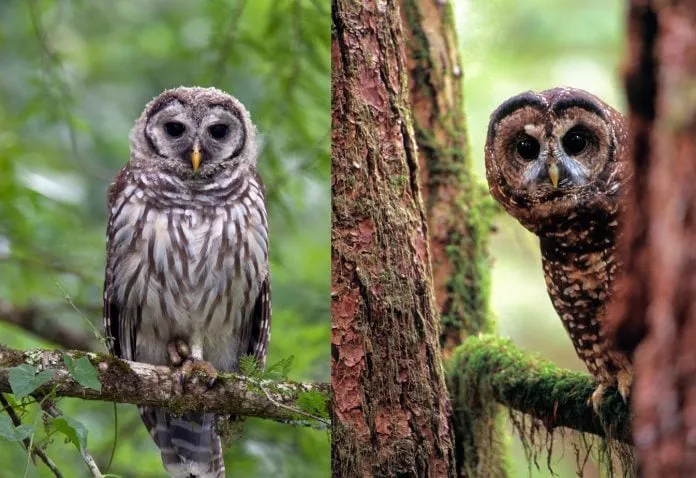In a closely watched vote this week, the United States Senate failed to pass Senate Joint Resolution 69 (S.J. Res 69), a measure aimed at disapproving the U.S. Fish and Wildlife Service’s (USFWS) rule regarding the Barred Owl Management Strategy across Washington, Oregon, and California. The resolution, brought under Chapter 8 of Title 5 of the United States Code, sought to block the agency’s plan to manage the barred owl population in habitats critical to the survival of the endangered northern spotted owl. While supporters of the resolution argued that the USFWS overstepped its mandate and that the strategy lacked sufficient scientific justification, the motion ultimately failed in the Senate, allowing the agency’s management plan to proceed.
The barred owl, a native species whose population has expanded into the Pacific Northwest, has been identified as a major competitor for the northern spotted owl, whose numbers continue to decline. The management strategy authorized the lethal removal of certain barred owls in carefully targeted areas to reduce competition and protect the spotted owl’s habitat. Critics of the strategy, including wildlife advocates and animal welfare groups, raised concerns about the ethics of culling a native species and called for non-lethal alternatives, such as habitat restoration and relocation. The failure of S.J. Res 69 means that these management actions, which involve selective removal, can continue under the USFWS plan.
The Senate vote comes at a time when public awareness around animal welfare issues is intensifying. In a parallel incident highlighting broader concerns about the treatment of animals in research, a truck transporting monkeys for laboratory experiments overturned recently, resulting in the tragic deaths of five monkeys, while three others remain at large. Reports indicate that the surviving monkeys were reportedly shot on sight, raising alarm among animal rights advocates and igniting renewed calls to ban the importation of monkeys for scientific experiments in the United States. PETA, which has long opposed the use of animals in research, has emphasized that animals are sentient beings who should never be subjected to harm for experimentation, entertainment, or exploitation of any kind. Their mission underscores a growing public demand for humane and ethical treatment of all animals.
The broader debate surrounding S.J. Res 69 and the treatment of research animals highlights a key tension in U.S. wildlife and animal policy: balancing conservation objectives with ethical responsibility. Wildlife management strategies often involve difficult decisions, particularly when protecting endangered species may involve harming other animals. However, critics argue that solutions should prioritize non-lethal interventions, scientific transparency, and long-term habitat conservation rather than culling. Advocates for animal rights also emphasize that incidents like the monkey truck accident reveal systemic risks in the commercial transport and experimental use of animals, prompting questions about regulatory oversight, accountability, and humane standards.
Environmental scientists have noted that barred owls are highly adaptable and have expanded rapidly into northern spotted owl territories, resulting in decreased nesting success and higher competition for resources. The USFWS strategy reflects an effort to maintain ecosystem balance and prevent further decline of endangered species, yet it also raises ethical questions about the methods used. Animal welfare organizations, meanwhile, argue that effective conservation can and should be achieved without resorting to killing, highlighting advances in habitat management, monitoring, and relocation programs.
The Senate’s rejection of S.J. Res 69 does not mark the end of advocacy efforts. Conservationists and animal rights groups continue to push for re-evaluation of management practices and the development of alternatives that protect both species while minimizing harm. At the same time, incidents like the monkey truck accident demonstrate the urgent need for stronger protections for research animals, including regulatory reforms, oversight improvements, and a transition toward non-animal testing methods wherever feasible.
For ongoing coverage of wildlife protection, endangered species management, and animal rights issues, visit Sustainable Action Now Wildlife, where we track legislative developments, conservation initiatives, and the ethical treatment of animals across the United States.
The recent Senate vote, combined with the tragedy involving laboratory monkeys, serves as a stark reminder of the challenges and responsibilities inherent in modern wildlife management and animal welfare policy. Both cases illustrate the need for policies rooted in science, ethics, and transparency, ensuring that the protection of endangered species does not come at the unnecessary expense of other sentient beings, and that animals used in research are treated with care, respect, and dignity.


